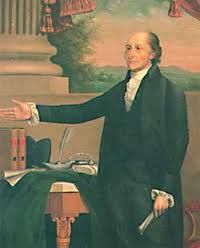The Obama administration has now taken an even lower road the Bush/Cheney regime when it comes to terrorism and terrorist organizations. US Secretary of State, Hillary Clinton is expected to inform Congress that she will be removing Mujahideen-e-Khalq (MEK) from the department’s list of Foreign Terrorist Organizations (FTO). MEK was designated a terrorist organization in 1997 during the Clinton administration and was one of the reasons for the justification of the Bush invasion of Iraq. MEK has also has been linked to the assassinations of several of Iran’s nuclear scientists.
The decision was driven by a steady flow of funds to members of Congress, lobbying firms and former officials in support of Iranian group:
The campaign to bury the MEK’s bloody history of bombings and assassinations that killed American businessmen, Iranian politicians and thousands of civilians, and to portray it as a loyal US ally against the Islamic government in Tehran has seen large sums of money directed at three principal targets: members of Congress, Washington lobby groups and influential former officials.
There is a long list of MEK supporters from both sides of the aisle: Democrats Howard Dean, Ed Rendell, Wesley Clark, Bill Richardson, and Lee Hamilton;
Republicans Rudy Giuliani, Fran Townsend, Tom Ridge, Michael Mukasey, ex-FBI director Louis Freeh, Newt Gingrich and Andrew Card. Current Republican Congress members Ted Poe, Ileana Ros-Lehtinen, the chair of the House of Representatives foreign affairs committee,; Mike Rogers, chairman of the House of Representatives intelligence committee; Dana Rohrabacher, chairman of the foreign affairs committee’s oversight subcommittee
Lobbyist groups: DLA Piper; Akin Gump Strauss Hauer & Feld; and DiGenova & Toensing;
Government outsiders and journalists: Nobel Peace Prize recipient, Eli Wiesel; pro-Israel supporter Alan Deschowitz; The Washington Post‘s Carl Bernstein and the Chicago Tribune‘s Clarence Page. Townsend and Rendell are both cable news contributors.
Glenn Greenwald, writing at The Guardian, has five lessons to be learned about :the rot and corruption at the heart of America’s DC-based political culture”:
Lesson One: There is a separate justice system in the US for Muslim Americans.
The past decade has seen numerous “material support” prosecutions of US Muslims for the most trivial and incidental contacts with designated terror groups. It is hardly an exaggeration to say that any Muslim who gets within sneezing distance of such a group is subject to prosecution. Indeed, as I documented last week, many of them have been prosecuted even for core First Amendment activities: political advocacy deemed supportive of such groups. [..]
In sum, there are numerous American Muslims sitting in prison for years for far less substantial interactions with terror groups than this bipartisan group of former officials gave to MEK. This is what New York Times Editorial Page Editor Andrew Rosenthal meant when he wrote back in March that the 9/11 attacks have “led to what’s essentially a separate justice system for Muslims“. The converse is equally true: America’s political elites can engage in the most egregious offenses – torture, illegal eavesdropping, money-driven material support for a terror group – with complete impunity.
Lesson Two: The US government is not opposed to terrorism; it favors it.
The history of the US list of designated terrorist organizations, and its close cousin list of state sponsors of terrorism, is simple: a country or group goes on the list when they use violence to impede US interests, and they are then taken off the list when they start to use exactly the same violence to advance US interests. The terrorist list is not a list of terrorists; it’s a list of states and groups which use their power to defy US dictates rather than adhere to them.
Lesson Three: “Terrorism” remains the most meaningless, and thus the most manipulated, term in political discourse.
Terrorism, at least in its applied sense, means little other than: violence used by enemies of the US and its allies. Violence used by the US and its allies (including stateless groups) can never be terrorism, no matter how heinous and criminal.
Lesson Four: Legalized influence-peddling within both parties is what drives DC.
MEK achieved its goal by doing more than merely changing the beneficiaries of its actions from Saddam to the US and Israel. It also found a way – how it did so remains a mystery – to funnel millions of dollars into the bank accounts of key ex-officials from both parties, a bipartisan list of DC lobbyist firms, and several key journalists. In other words, it achieved its policy aims the same way most groups in DC do: by buying influence within both parties, and paying influence-peddlers who parlay their political celebrity into personal riches.
Lesson Five: there is aggression between the US and Iran, but it’s generally not from Iran.
Over the last decade, the US has had Iran almost entirely encircled, thanks in part – only in part – to large-scale ground invasions of the nations on its eastern and western borders. Some combination of Israel and the US have launched cyberwarfare at the Iranians, murdered their civilian scientists, and caused explosions on its soil. The American president and the Israeli government continuously and publicly threaten to use force against them.
Remember Osama bin Laden and how well that went.
Where is the protest from the so-called progressive left who were so opposed to the right wing Republican fetish with a war with Iran? ‘It’s OK if you’re Obama” should not be acceptable.


Recent Comments